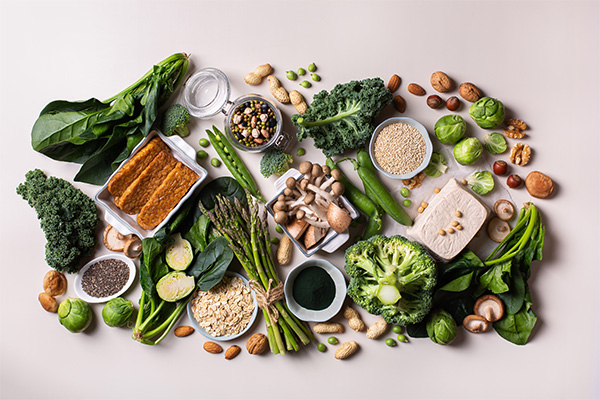Foundations award McKelvey Engineering $5 million for food production initiative
Feng Jiao to lead the work designed to address food insecurity in low- and middle-income countries

More than 345 million people worldwide have experienced food insecurity in 2023, a figure that has more than doubled since 2020, according to the World Food Programme. An engineer in the McKelvey School of Engineering at Washington University in St. Louis plans to address this by producing a sustainable protein from carbon dioxide.
Feng Jiao, who is internationally renowned for carbon dioxide conversion and electrolysis, has received a nearly $5 million, two-year grant from the Novo Nordisk Foundation and the Bill & Melinda Gates Foundation to create a novel technology that could transform food insecurity in low-and middle-income countries by overcoming limited resources such as arable land. This grant is part of a newly established Acetate Consortium. The two foundations share a mission to improve lives worldwide, including increasing access to foods and drugs.
“This project will benefit economically disadvantaged individuals and families and those who lack access to high-quality food and other goods and services due to land- or resource-limited locations in the world,” said Jiao, professor of energy, environmental & chemical engineering. “The end result is a sustainable alternative to animal proteins made using a fraction of the land area normally used for agriculture.”
Jiao plans to create a new method to manufacture acetate using carbon dioxide as the sole carbon source, efficiently and sustainably to then transform the carbon dioxide-derived acetate into high-value proteins for foods and drugs. The method is based on an electro-biological hybrid approach, which can overcome limits of photosynthesis, such as inefficient capture of solar energy and poor conversion of carbon dioxide.
“Acetate is a soluble, two-carbon substrate that can be electrochemically produced and is more readily metabolized by a broad range of organisms,” Jiao said. “Using acetate produced from carbon dioxide electrolysis to cultivate food-producing organisms could allow food production independent from biological photosynthesis, creating enormous potentials in boosting solar-to-biomass efficiency.”
Carbon dioxide electrolysis uses electricity to convert carbon dioxide and water into oxygen, acetate and other chemicals. In an earlier feasibility study, Jiao and his collaborator, Robert Jinkerson at the University of California, Riverside, used the process to create an effluent that supported the growth of algae, yeast and mushrooms, all of which can be used for food and without reliance on photosynthesis.
With this funding, Jiao and his team will identify the methods to create the necessary electrocatalysts for the process; design and build a 2-kilowatt and a 10-kilowatt carbon monoxide electrolyzer to produce acetate; explore potential methods to minimize byproducts; and validate the cost of acetate production. The team will work with Lectrolyst, a company co-founded by Jiao, to optimize the system to improve acetate concentration and purity.




